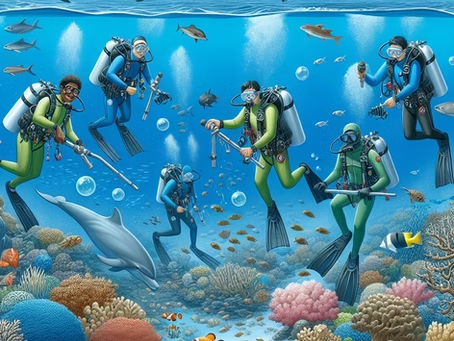The Critical Need for Global Ocean Stewardship
Our planet’s oceans form a single interconnected system that transcends national boundaries, making international cooperation not just beneficial but essential for effective conservation. Ocean currents circulate water, nutrients, and marine life across vast distances, meaning that environmental impacts in one region inevitably affect ecosystems thousands of miles away. This fundamental connectivity necessitates collaborative approaches to address pressing transboundary challenges including plastic pollution, illegal fishing, habitat destruction, and the escalating impacts of climate change. Through shared responsibility, coordinated policy-making, and joint scientific efforts, nations can implement comprehensive conservation strategies that protect marine biodiversity, ensure sustainable resource use, and safeguard ocean health for future generations.
Key Drivers for International Collaboration
- Ocean currents and migratory species transcend political boundaries requiring cooperative management
- Transboundary threats like plastic pollution and illegal fishing demand coordinated solutions
- Shared resources create mutual responsibilities for sustainable ocean governance
- Climate change impacts on oceans require global mitigation and adaptation strategies
- Economic benefits from healthy oceans extend beyond national jurisdictions
Successful Frameworks for International Cooperation
Several mechanisms have proven effective in facilitating multinational ocean conservation efforts.
Global Agreements and Conventions
International agreements provide the legal foundation for coordinated ocean conservation. The United Nations Convention on the Law of the Sea (UNCLOS) establishes the comprehensive legal framework for all ocean activities, while the recent Biodiversity Beyond National Jurisdiction Agreement (BBNJ) creates mechanisms for protecting marine biodiversity in international waters. These frameworks enable nations to work together under established rules and standards.
Regional Cooperation Models
Regional seas programs demonstrate how neighboring countries can effectively address shared marine challenges. Initiatives like the Mediterranean Action Plan and the Convention for the Protection of the Marine Environment of the North-East Atlantic (OSPAR) enable participating nations to develop tailored solutions to common problems, leveraging geographical proximity and similar ecological conditions to achieve conservation outcomes that benefit all parties.
Science-Policy Interfaces
Organizations like the Intergovernmental Oceanographic Commission (IOC) of UNESCO bridge scientific research and policy development, facilitating knowledge exchange and ensuring conservation decisions are grounded in robust evidence. These interfaces help align national policies with international objectives, creating coherence across different governance levels.
Addressing Transboundary Challenges
International cooperation is particularly crucial for tackling environmental issues that cross maritime boundaries.
Combating Marine Plastic Pollution
Plastic waste circulates globally through ocean currents, affecting even the most remote ecosystems. Addressing this crisis requires cooperation across the entire plastic lifecycle—from production and consumption to waste management and cleanup. International efforts like the global plastic treaty negotiations aim to create binding standards and coordinated action to reduce plastic pollution at source.
Eliminating Illegal Fishing Practices
Illegal, unreported and unregulated (IUU) fishing undermines conservation efforts and sustainable management regimes, often operating across multiple jurisdictions to evade detection. Combating these practices requires shared monitoring systems, coordinated patrols, information exchange, and harmonized port controls that prevent illegally caught fish from entering global markets.
Managing Migratory Species
Many marine species—including whales, sea turtles, tuna, and sharks—migrate across national boundaries and international waters, requiring cooperative management throughout their ranges. Agreements like the Convention on Migratory Species bring range states together to develop coordinated conservation plans that protect critical habitats and ensure these species can complete their life cycles.
The Economic Imperative for Cooperation
International collaboration creates significant economic benefits that extend beyond environmental protection.
Sustainable Blue Economies
Coordinated approaches to ocean management enable the development of sustainable blue economies that generate prosperity while maintaining ecosystem health. By aligning policies and regulations, neighboring countries can create stable environments for investment in sustainable fisheries, renewable energy, and ecotourism that benefit multiple nations simultaneously.
Cost Sharing and Efficiency
Cooperation allows countries to share the substantial costs of ocean monitoring, enforcement, and research. Joint patrols to combat illegal fishing, shared satellite monitoring systems, and collaborative research vessels represent more efficient use of resources than individual national efforts, maximizing impact while minimizing duplication.
Market Access and Standards
International agreements on sustainable seafood certification, marine stewardship standards, and traceability requirements create market incentives for conservation. By harmonizing these standards across trading partners, countries ensure that economic activities support rather than undermine conservation objectives while maintaining fair access to global markets.

